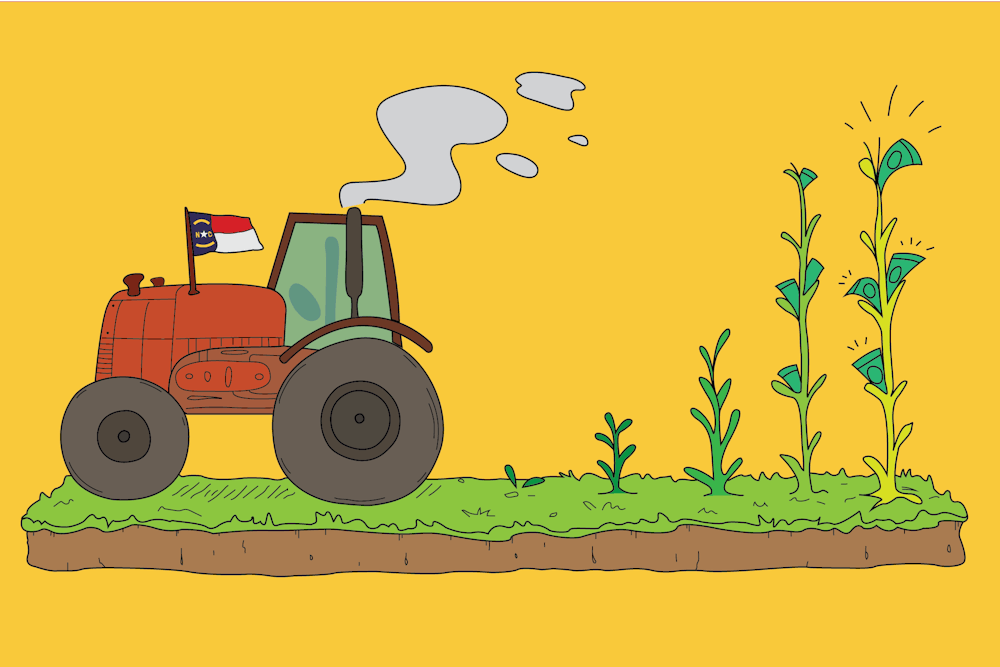The North Carolina Department of Agriculture and Consumer Services recently awarded $18.2 million in farmland preservation grants.
The funding aims to address farmland loss, or a land's transition from agricultural use to another purpose. North Carolina has the estimated second highest rate of farmland loss in the country, according to N.C. FarmLink at North Carolina State University.
The grants are designed to help farms of all types and sizes while maintaining their private ownership, NCDA&CS Farmland Preservation Director Evan Davis said.
The grant money will support different farmland preservation efforts across the state. The full list of grant recipients can be found in the Sept. 13 press release from the NCDA&CS.
The grants include over $8 million for agricultural conservation easements. Davis said agricultural conservation easements allow property owners to waive development rights for a property so the land cannot be converted for non-agricultural purposes.
Additionally, the grants allocate over $5 million for the Local Agricultural Growth Zones program, which gives funding to counties and conservation organizations to create larger blocks of permanently protected land.
“We will continue to push for more funding to ensure we have the natural resources available to sustain ourselves in the future,” said North Carolina Agriculture Commissioner Steve Troxler in a press release.
Director for N.C. FarmLink in Eastern North Carolina Noah Ranells said farms are increasingly replaced by residential development, especially around urban areas. Davis said industrial and commercial development are also encroaching on existing farmland.
“It's harder for young farmers to get started if they don't already have some type of family business or some type of corporation or partnership with an existing landowner,” Davis said.




